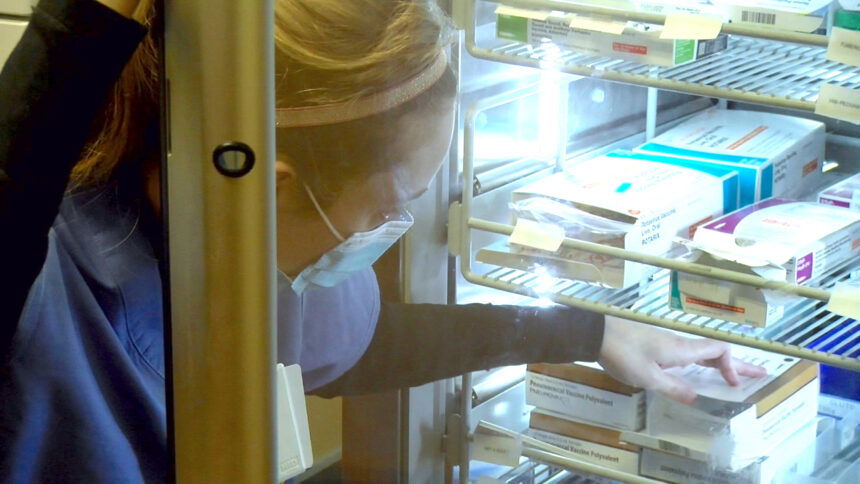Multiple COVID-19 vaccines could be available soon, each still needs to be approved

COLUMBIA, Mo. (KMIZ)
At least two COVID-19 vaccines are expected to be available and administered as early as December.
University of Missouri Health Care Executive Director of Pharmacy and Laboratory, Brad Myers, said two pharmaceutical companies have developed vaccines that need to be kept in supercold freezers. He said the Pfizer vaccine must be kept at 70 degrees below zero and the Moderna vaccine has to be stored at 20 degrees below zero.
The extreme cold storage conditions that the vaccines require means that it will not be available to local health departments. MU health care will be one of the only facilities to store the vaccine. Representatives from St. Marys and Lake Regional hospitals told us they plan on having the vaccine, but they are still working out their plans. Boon hospital did not get back to us with their plans for the vaccine.
Myers explained, “it’s just how the vaccine has been prepared by the manufacturers.” MU Health Care will be one of nine storage facilities in Missouri where the vaccines will be kept.
It was announced Friday morning, Pfizer, Moderna and BioNTech all have plans to seek emergency use authorization for the respective vaccines. The authorization allows the vaccines to be taken without all evidence is available before approval.
Myers said officials with the FDA and CDC will review the vaccines and that it could take several weeks for the vaccine candidates to receive approval.
MU Health Care has not received clinical data or details about the safety of the vaccine candidates but the information will be sent out if they are approved, Myers said.
The information Myers and MU Health Care have received so far show both vaccines are about 95 percent effective against COVID-19, according to drug trials. Once the vaccines are approved, the state will provide the safety information to labs and hospitals and further details will be provided to the public.
Both the Moderna and Pfizer vaccines have to be thawed, then stored in a refrigerator for up to five days, at which point they can be administered to a patient, Myers said. He added each vial will contain 10 doses and the vial must be completely administered within 24 hours.
Patients will need to receive a second dose with in 28 days, Myers said.
The state will be responsible for the distribution of the vaccine to individual health care systems.
The vaccine will be administered in three phases. It will first be available to those who fall under phase one; first responders, nurses, doctors, pharmacists, physicians and healthcare providers. Myers said the vaccine will next be provided to clinics, but that plan is still in the works. It will be available to the general public in the final phase.
Dr. Christelle Ilboudo, a pediatric infectious disease specialist at MU healthcare, told us in the spring they expect to have multiple COVID vaccines that have been approved and will be available for the public to choose from. Dr. Ilboudo said, the FDA and CDC will approve look over the safety data to confirm who should get it, when, and how. I asked about how vaccines would affect children and if there were any tested on children. Dr. Ilboudo explained that these vaccines have tested on adults. Dr. Ilboudo said, "The two vaccines that have come out so far most of the studies were done in adults, there are some studies that are looking at recruiting children and then there are still some that are ongoing that are trying to recruit other specific populations as well."
Dr. Ilboudo explained that once the vaccine goes through all of the processes that it needs to go through, the vaccines will be very safe vaccines for the public. She explained the reason these vaccines seem to be coming out so fast is that the manufacturers have already done most of the work that is usually done after FDA and CDC approval. "A typical vaccine manufacture, you first come out with the vaccine, you do your clinical trials, and then you try to mass-produce the vaccine, but they had already put all of those things in place."
Pfizer has officially submitted its application to the FDA. The FDA approval process can take anywhere from 3 to 4 weeks.
